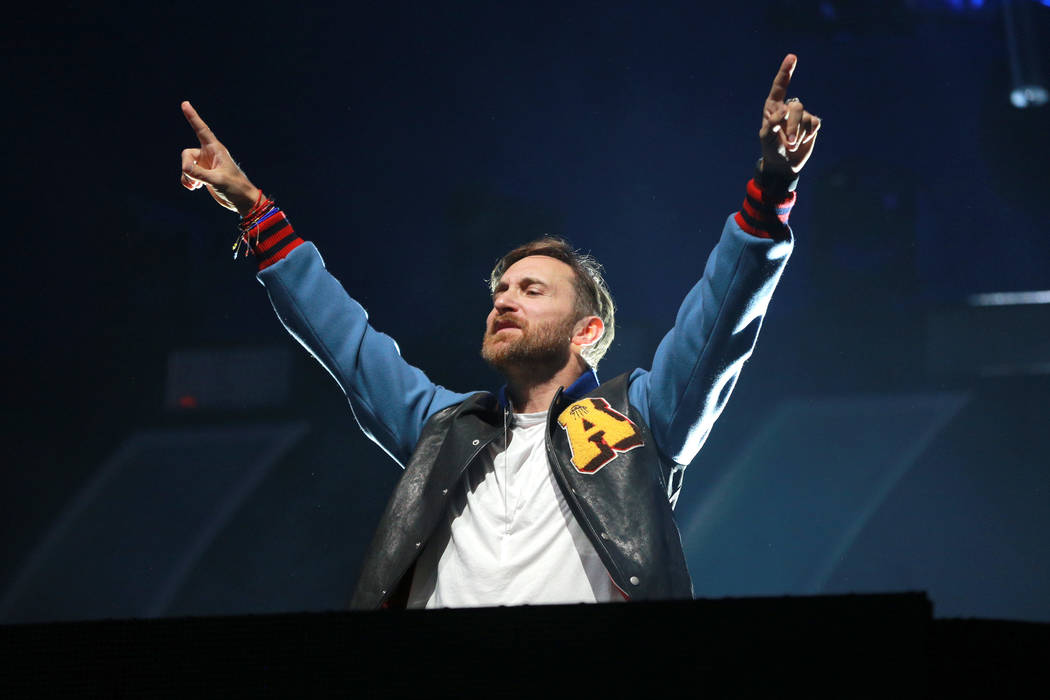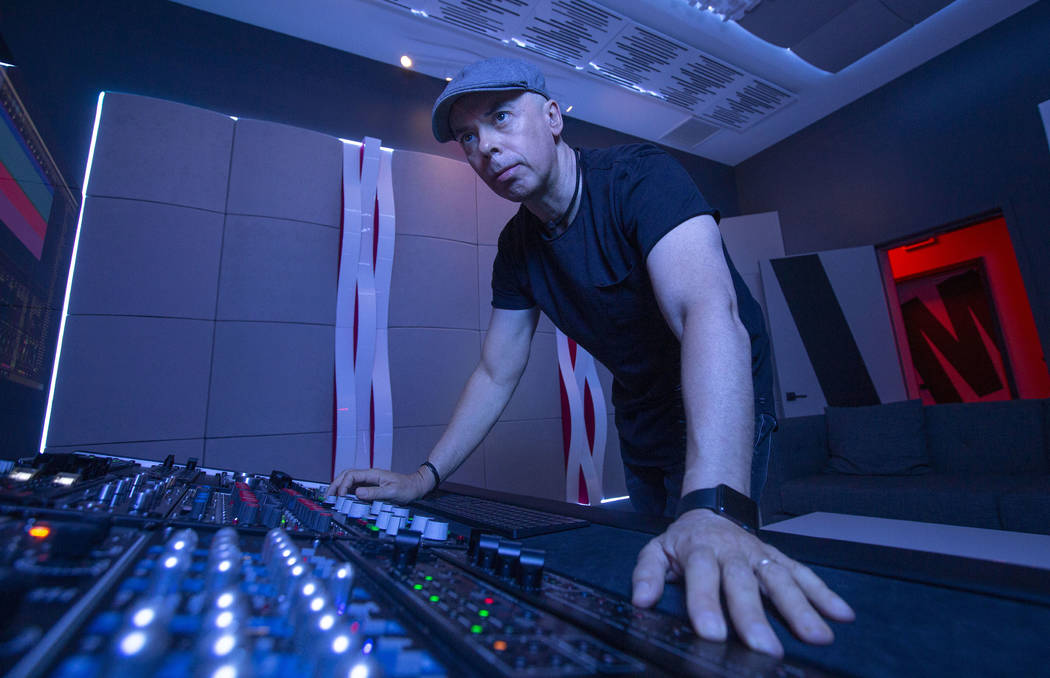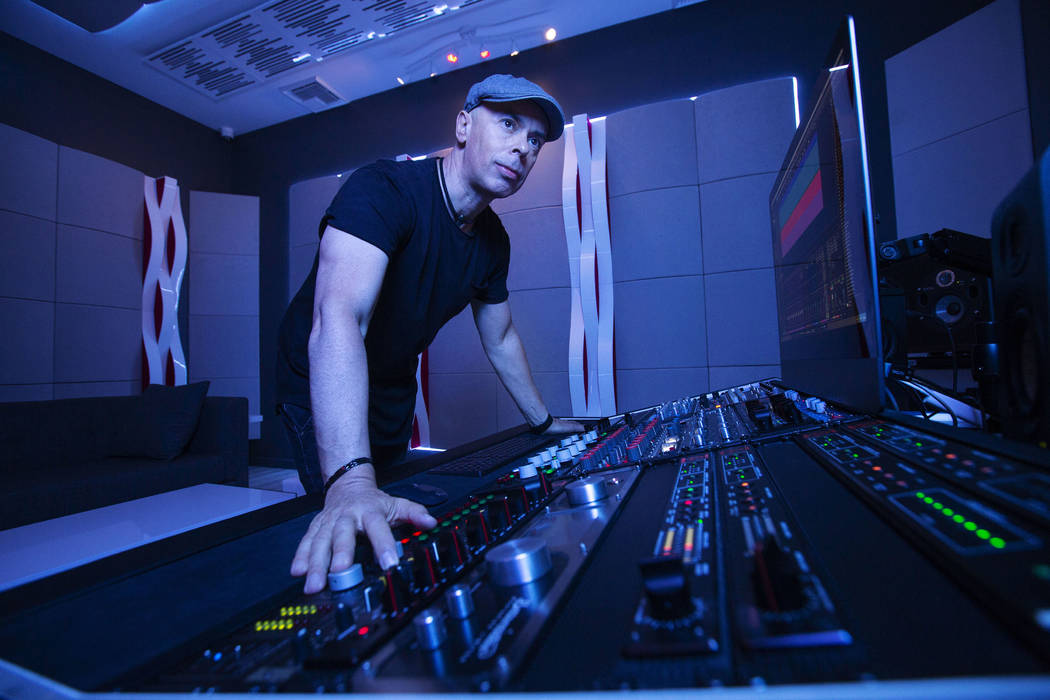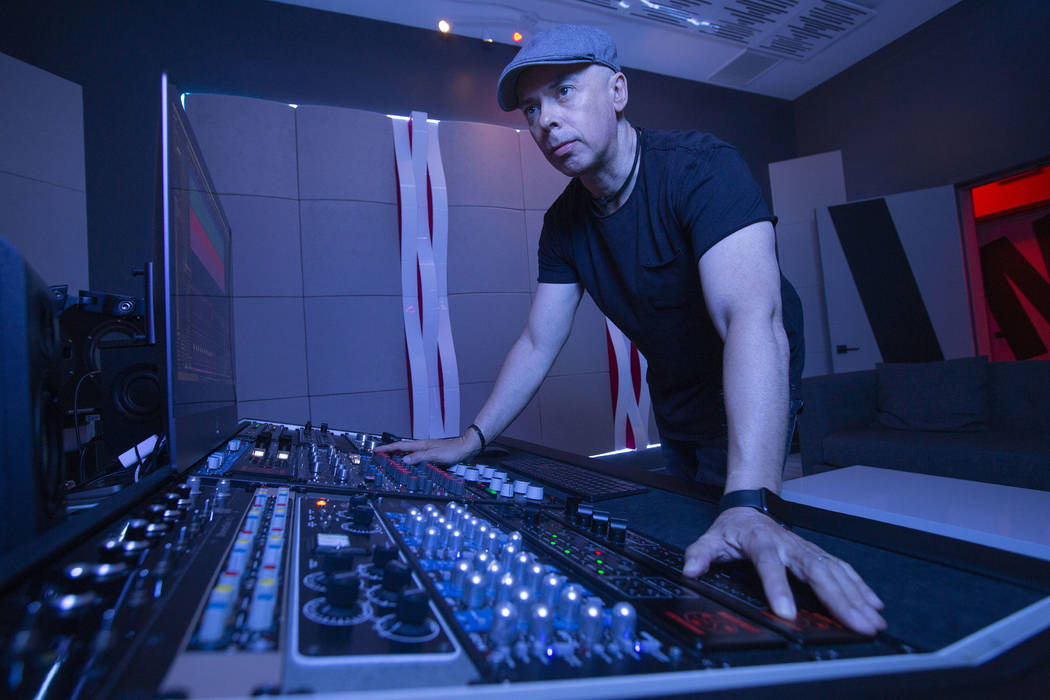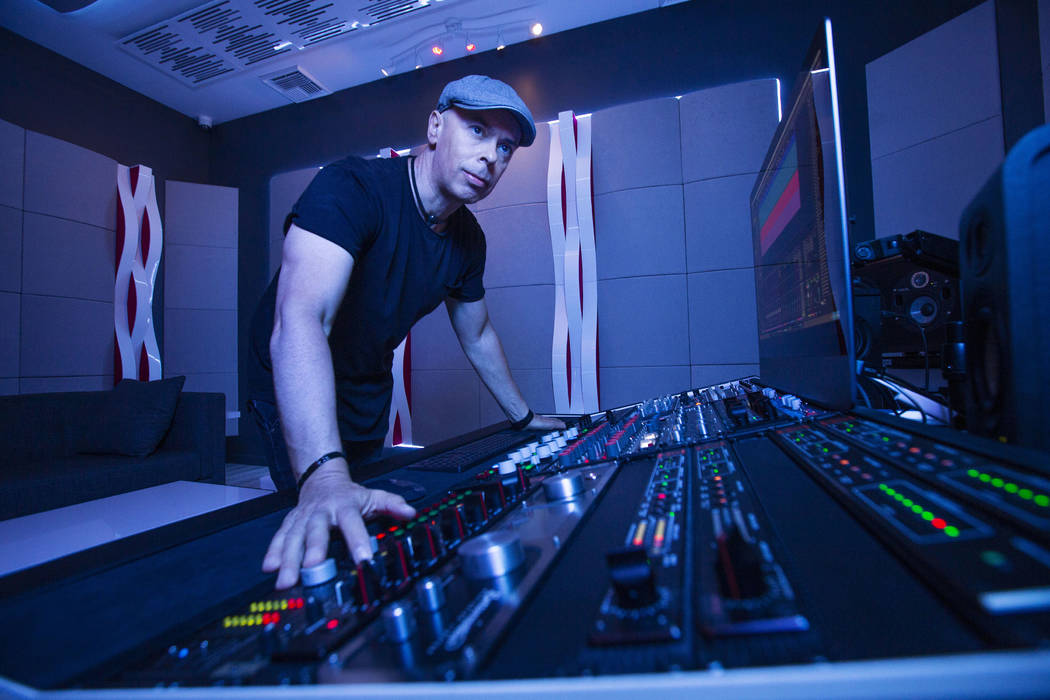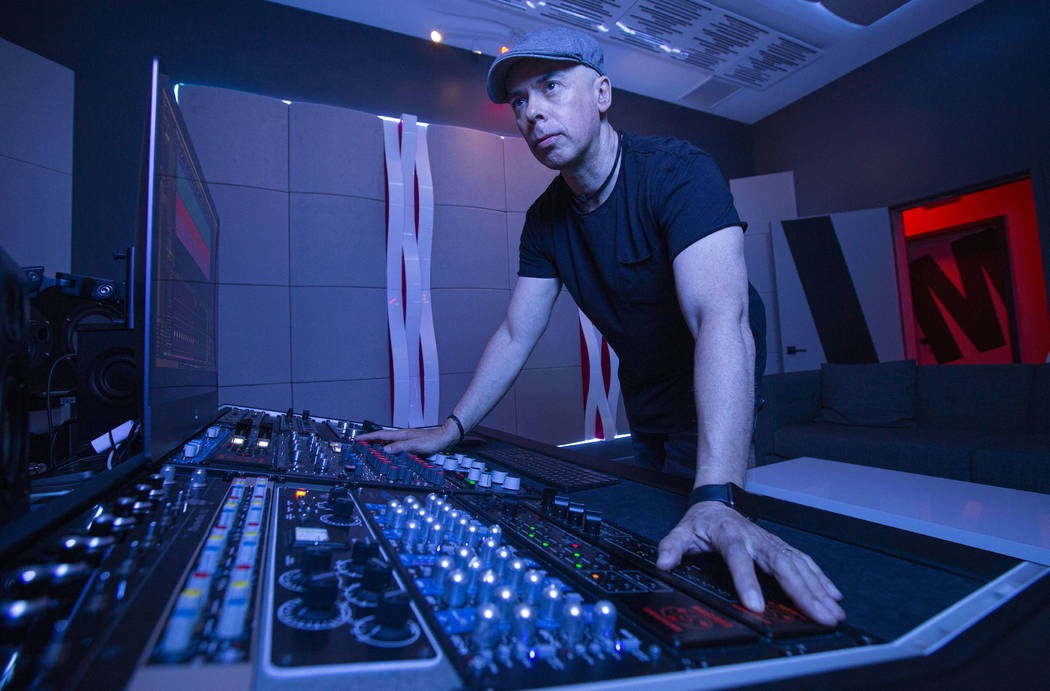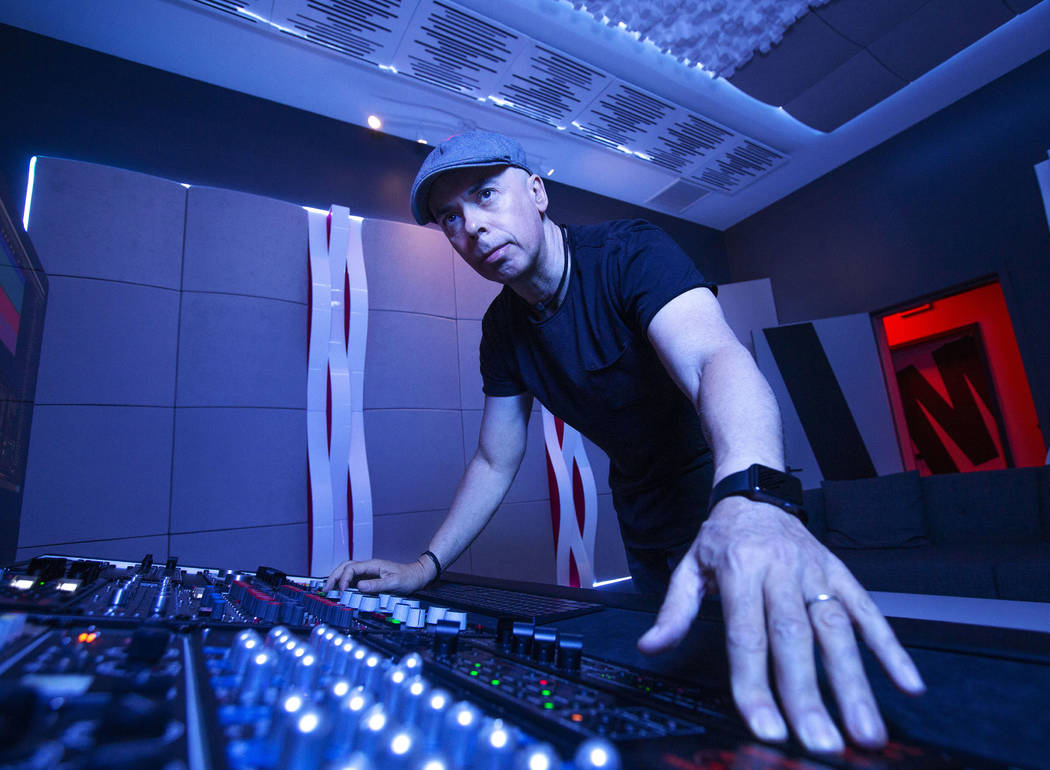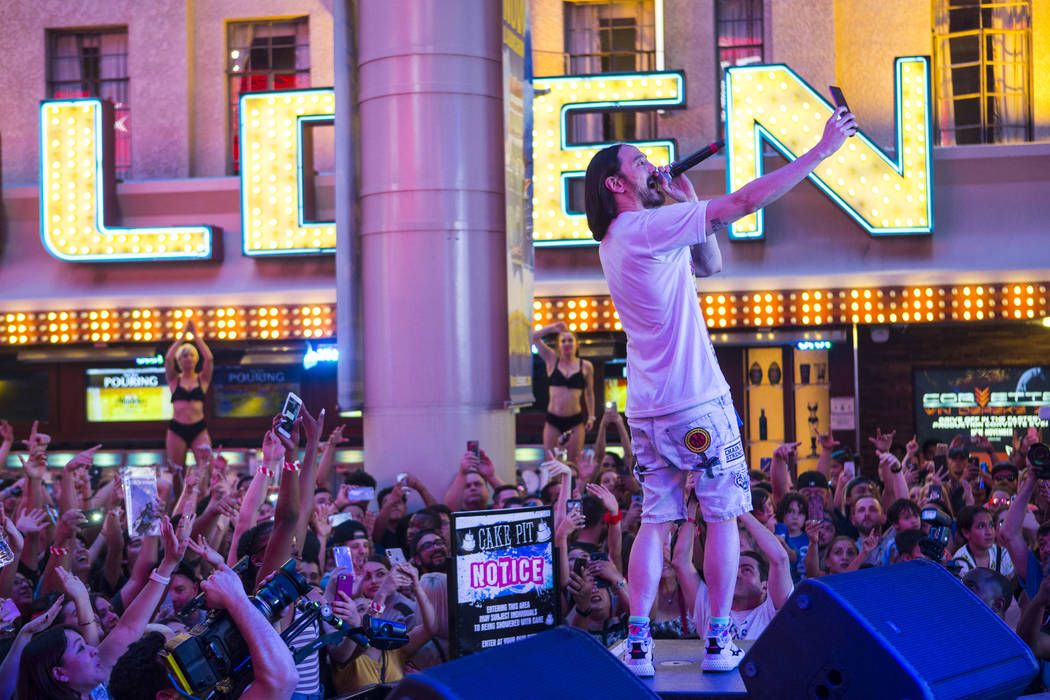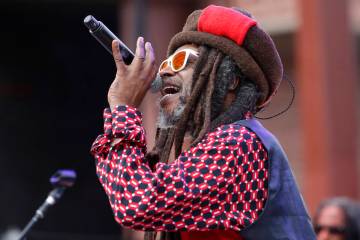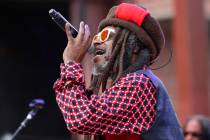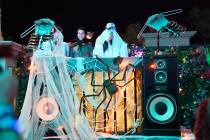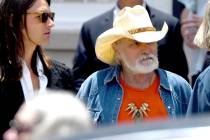Las Vegas-based mixing engineer has helped craft modern EDM sound
Vegas Voices is a weekly series highlighting notable Las Vegans.
The place is much like the nightclubs it soundtracks: the lighting muted, the music anything but. Studio DMI is quiet for the moment, LED bulbs bathing the various recording suites in deep reds and blues from behind treated acoustic walls adorned with tasteful, minimalist art pieces.
Five miles west of the Strip, this is where the sound of the Strip originates.
The exterior is inauspicious save for the Focal headphones logo, which adorns a squat tan building tucked into a commercial complex.
There’s no signage out front, nor is any necessary. This is a members-only kind of place, no need to advertise.
About those members. Superstar DJ-producer Dillon Francis was here earlier in the week. French hit-maker David Guetta before that. Add Steve Aoki, Diplo, Skrillex, Prince Royce and dozens more to the client list.
Early on a weekday afternoon, the man behind it all leads a quick tour of Studio DMI, which opened in May.
“What makes it kind of unique is the way that it’s set up for collaboration for multiple producers,” Luca Pretolesi says as he takes us inside Studio D, an accent betraying his Italian origins.
Gone are the massive mixing boards once synonymous with big studio productions.
In their place, at least here, are spots for laptops, upon which some of the biggest hits in electronic dance music have been made.
This place was designed with the DJ-producer in mind. Pretolesi was one himself back in the day.
Now he’s one of the most renowned and successful mixing engineers, having worked with all of the aforementioned superstars, earned Grammy nods and helped craft songs that sold millions.
Taking a brief pause from his hectic schedule — Pretolesi turned in a whopping 294 mixes last year — the affable dance-music lifer explained how he helped construct the sound of modern EDM.
Review-Journal: One of the things that distinguishes EDM is that the artists are the producers, and a lot of the time, producers prefer to mix their own tracks. A lot of them traditionally aren’t going to rely on an outside mixer. You occupy a unique role in that sense.
Luca Pretolesi: Sometimes, the technology allows you to do a decent mix even if you’re a producer but not a super-skilled mix engineer. You can get close to the final destination. In my work, I’m sometimes taking production that’s already mixed in some way, but just going to make it HD. My job is to enhance the vision. A lot of rock or hip-hop mixers who I respect, who are great, they just don’t understand the music we’re in, because it’s very specific. Certain stylistic ideals in the mix, they’re not necessarily technically correct, they’re just part of the sound. It’s like rock guitar in the ’60s. If you’re a jazz mixer, you hear all the distortion — “That’s off.” No, it’s just part of the style.
Can you break down what it entails to create a mix?
One thing that is very important is enhancing the emotional part of the story of the song. There’s a reason why certain chord progressions of the Beatles touch your heart, you get goose bumps. That’s mixing related. If you take ‘Imagine’ and just put on gigantic reverb, you’re not going to feel anything. It’s trying to enhance the emotion of the track and bring out the best version of the actual composition.
You’ve become a go-to guy in EDM mixing, from David Guetta to Diplo to Steve Aoki. What was your entree into this world?
It’s kind of like my second life. In 2007, 2008, something happened here in the states where electronic music started to penetrate the scene in a way that, coming from Europe, happened 15 years before, same thing. Dance music was very underground, and then at one point, some dance song went to the charts and dance music became part of the mainstream music scene. So, in some ways, I was exposed because I was producing back then and I’ve always been a mixer-engineer.
And then at one point in the early 2000s, I felt a disconnect with the scene in Europe. Dance music became a little bit boring. I took a little bit of a break. I moved to Vegas. I was getting excited about being in a place where everything was new. I started to just organically help a couple of producers, part of Steve Aoki’s team. Then they played one of my mixes at EDC, and everybody’s talking about, “Why does this track sound that good?” Steve Aoki asked me to help, and I started helping him on different things. A year later, we got a Grammy nomination.
What is your approach to making records sound better?
It’s a lot of details, a lot of separation. It’s like a track going under the microscope, but retaining something that’s extremely important: loudness. The competition between producers, for about five years now, is how to get the loudest track but retain dynamics. So I can describe my work as retaining perceived dynamics with very loud mixes with a lot of definition. My goal is that whatever I do, there is a certain quality level and a personality.
Electronic music evolves so quickly. You always have to keep abreast of and work within an increasingly wide range of sounds.
Very true. The hardest part is retaining the nature of certain elements. When EDM became mainstream, we had a lot of pop music meld with it. There was a fusion of pop and EDM where we didn’t even know what it is anymore, “Is EDM part of pop? Pop part of EDM?” So, I’ve always tried to respect a certain aesthetic of, for example, vocals: It’s very easy to change the nature of a singer’s personality when you put a big singer on an EDM track.
So what I try to do is respect the integrity and the aesthetic of that singer and blend what I do from the music side. That’s very, very important. I mixed a Beyonce record for some remixes, and I’m always very careful to say, “OK, you are Beyonce first, and then it’s my job to make you blend with my work, not to change you to fit what I’m mixing.”
It’s almost like taking a classic rock song and trying to clean the guitar and take away the distortion. I try to respect the culture.
Contact Jason Bracelin at jbracelin@reviewjournal.com or 702-383-0476. Follow @JasonBracelin on Twitter.
Getting to know: Luca Pretolesi
Newest Vegas discovery
All the new cafes and vegan spots.
Hobbies
I don't have kids, but I have a dog. Me and my wife, every moment we have we take Pancho, an English Bulldog, on adventures.
Favorite vacation destination
I'm Italian, and I cannot wait every year to go back to Italy. My wife, she was born in Sardinia. I love going there.
Place you always take visitors
Downtown right now, love it.
Special talents
I'm an OK piano player.



